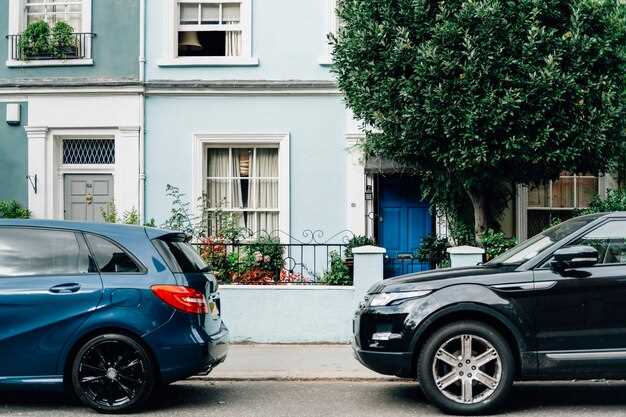
When it comes to compact cars, the Toyota Corolla and Honda Civic are two of the most recognizable names on the market. Both vehicles have earned a reputation for reliability, affordability, and excellent fuel efficiency, making them popular choices for a wide range of consumers. In this comparison, we will delve into the strengths and weaknesses of each vehicle to determine which one truly comes out on top.
The Corolla has long been celebrated for its dependability and user-friendly features, appealing especially to those who seek a hassle-free driving experience. On the other hand, the Civic is known for its sporty performance and engaging driving dynamics, attracting a younger demographic interested in an exciting ride. As we explore the various aspects of these two vehicles–ranging from performance and comfort to technology and safety–it becomes essential to evaluate what each model brings to the table.
Ultimately, the choice between the Toyota Corolla and the Honda Civic boils down to individual preferences and priorities. This comparison aims to provide an in-depth analysis of features, pricing, and user satisfaction to help prospective buyers make an informed decision about which of these popular compact cars is the best fit for their lifestyle.
Toyota Corolla vs Honda Civic: Which Car Wins?
When considering the compact car market, the Toyota Corolla and Honda Civic are two of the most popular choices. This comparison will analyze various aspects to determine which vehicle stands out in terms of performance, comfort, and practicality.
Performance
- Toyota Corolla: Known for its reliable performance, the Corolla features a 1.8-liter engine that delivers a smooth ride with decent fuel efficiency, averaging around 30 mpg in the city and 38 mpg on the highway.
- Honda Civic: The Civic offers a more dynamic driving experience with its turbocharged 1.5-liter engine, providing a sportier feel and better acceleration. It also boasts an impressive fuel economy, reaching up to 32 mpg in the city and 42 mpg on the highway.
Interior and Comfort

- Toyota Corolla: The interior of the Corolla is designed for comfort, featuring quality materials and spacious seating. The infotainment system is user-friendly, though it may lack some advanced features found in competitors.
- Honda Civic: The Civic excels in interior design with a modern aesthetic and more upscale materials. It offers enhanced technology integration, including a larger touchscreen and better sound systems.
Safety and Reliability

- Toyota Corolla: Renowned for its safety, the Corolla comes equipped with several advanced safety features, earning high ratings in crash tests.
- Honda Civic: The Civic also prioritizes safety, providing similar features and ratings. However, it has a slight edge with more standard driver-assistance technologies.
Price and Value
- Toyota Corolla: Typically priced lower than the Civic, the Corolla is an appealing choice for budget-conscious buyers.
- Honda Civic: While usually more expensive, the Civic’s higher resale value and performance capabilities may justify the price for some buyers.
In conclusion, both the Toyota Corolla and Honda Civic offer unique advantages. The Corolla may win in terms of reliability and affordability, while the Civic appeals to those seeking performance and a more feature-rich interior. Ultimately, the choice between these two iconic models depends on individual priorities and preferences.
Performance Metrics: Acceleration, Handling, and Fuel Efficiency
When comparing the Toyota Corolla and the Honda Civic, performance metrics such as acceleration, handling, and fuel efficiency are crucial factors for potential buyers. Both vehicles have established reputations for reliability, but their performance characteristics differ significantly.
Acceleration: The Toyota Corolla typically features a more modest engine lineup, prioritizing fuel economy over raw power. The standard engine provides adequate acceleration for daily driving, but it may not satisfy enthusiasts seeking thrilling performance. In contrast, the Honda Civic offers more dynamic options, including turbocharged engines that deliver quicker acceleration. This difference can be particularly noticeable during highway merging or overtaking maneuvers.
Handling: The handling characteristics of these two models also diverge. The Toyota Corolla is designed with a focus on comfort, providing a smooth ride and stable dynamics. While the ride quality is commendable, it may lack the sporty feel that some drivers desire. Conversely, the Honda Civic is known for its agile handling and responsiveness. It offers a more engaging driving experience, making it a preferred choice for those who appreciate sharper steering and a sportier chassis.
Fuel Efficiency: Fuel economy remains one of the most significant selling points of the Toyota Corolla. It consistently ranks among the leaders in its class, thanks to its efficient powertrains. This means fewer stops at the gas station and lower overall operating costs. The Honda Civic also boasts commendable fuel efficiency, especially with its more efficient turbocharged engines. While the Civic may not match the Corolla in every scenario, it still offers competitive numbers.
In summary, the Toyota Corolla excels in fuel efficiency and comfortable driving, making it an excellent choice for pragmatic buyers. The Honda Civic, on the other hand, shines in acceleration and handling, catering to those who prioritize a more spirited driving experience. Ultimately, the choice between these two well-regarded vehicles will depend on individual preferences regarding performance and driving style.
Cost of Ownership: Insurance, Maintenance, and Resale Value
When comparing the Toyota Corolla and Honda Civic, the cost of ownership is a crucial factor for potential buyers. Insurance premiums can vary based on the model, but generally, the Corolla tends to have lower insurance costs due to its reputation for safety and reliability. This can offer a significant advantage for budget-conscious owners looking to minimize ongoing expenses.
Maintenance costs for both vehicles are relatively affordable. However, the Corolla often attracts lower repair costs due to its widespread use and availability of parts. In contrast, while the Civic may require slightly higher maintenance expenses, its overall reliability remains commendable. Owners of either car can benefit from routine servicing agreements, which can help spread out maintenance costs over time.
Resale value is another critical aspect to consider in this comparison. Historically, the Corolla has shown impressive resale value, maintaining a strong demand in the used car market. This can be attributed to its longevity and the brand’s overall reliability. Similarly, the Civic also retains its value well but might slightly lag behind the Corolla in this particular area. Buyers looking for a vehicle that will hold its value over time might find the Corolla to be the more appealing option.
In summary, when it comes to insurance, maintenance, and resale value, the Toyota Corolla offers some advantages that can make it a more cost-effective choice for many drivers. However, both vehicles have their strengths and merits, making it essential for buyers to consider their specific needs and preferences.
User Experience: Interior Comfort, Technology Features, and Safety Ratings
The Toyota Corolla is known for its spacious and comfortable interior, offering ample legroom and supportive seating for both the driver and passengers. Its cabin design emphasizes ease of use, featuring a straightforward layout that ensures all controls are within easy reach. The materials used in the Corolla’s interior are of high quality, contributing to a pleasant ambiance during drives.
In terms of technology features, the Corolla boasts an intuitive infotainment system. The standard touchscreen display is responsive, and features such as Apple CarPlay and Android Auto integration enhance the overall user experience. Toyota also includes a suite of driver-assistance technologies, including adaptive cruise control and lane departure warning, further enhancing the car’s appeal.
Safety ratings for the Toyota Corolla are impressive, consistently earning high marks from institutions such as the National Highway Traffic Safety Administration (NHTSA) and the Insurance Institute for Highway Safety (IIHS). Its comprehensive safety features and structural integrity contribute to its reputation as a dependable choice for safety-conscious buyers.
In comparison, the Honda Civic also delivers strong points in interior comfort and technology. The Civic’s cabin prioritizes a sporty aesthetic while maintaining practicality. It offers slightly more cargo space, and its seating is likewise comfortable for long trips. The technology features in the Civic are competitive, with a user-friendly infotainment system and advanced connectivity options. Safety ratings for the Civic are similarly stellar, showcasing Honda’s commitment to passenger protection.
Ultimately, both the Toyota Corolla and Honda Civic excel in user experience, interior comfort, technology offerings, and safety ratings. The choice may depend on personal preferences regarding design and specific features, but either car stands out in providing a satisfying driving experience.
